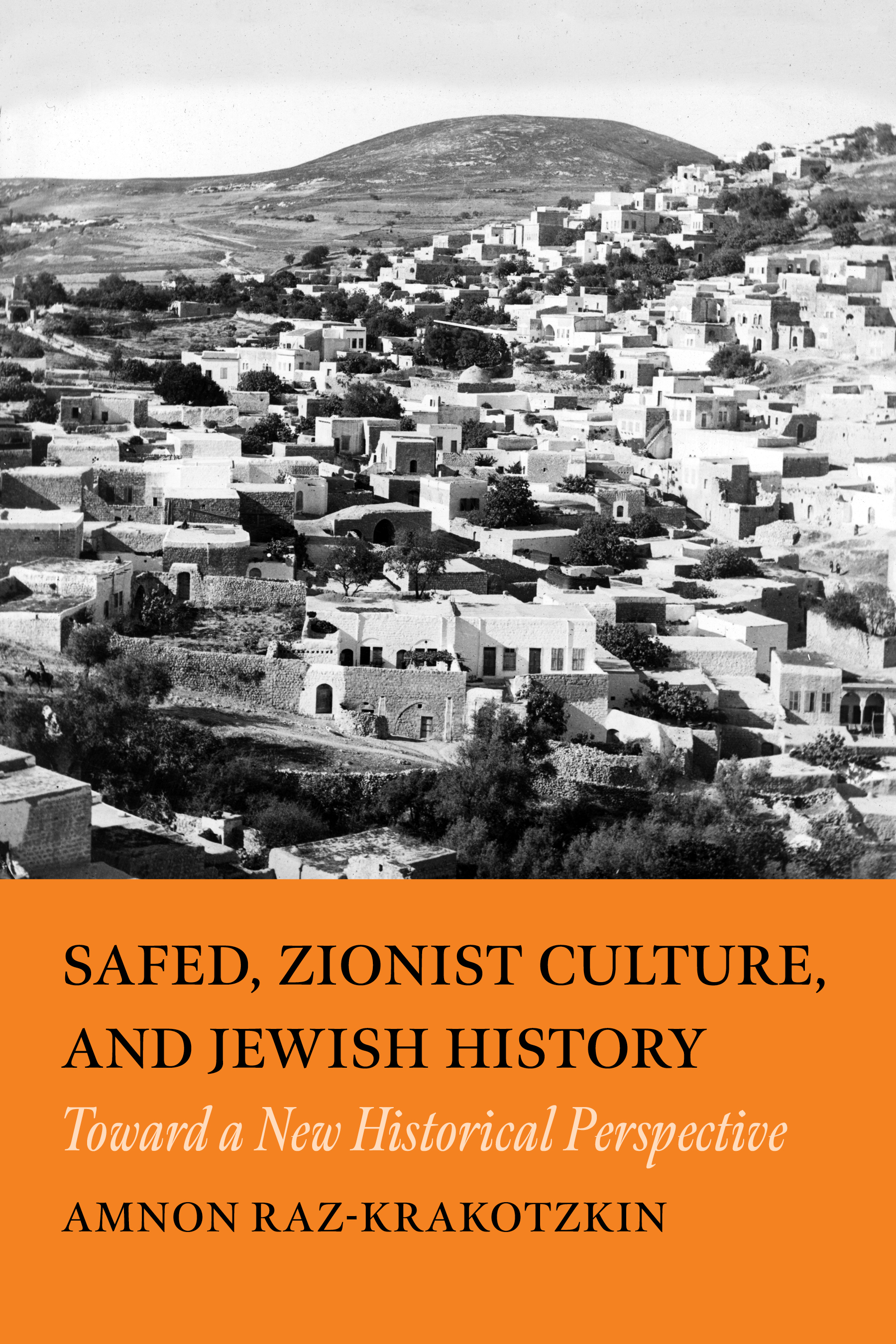Forthcoming
The People’s Uprising and the Fall of the Warsaw Ghetto, April 1942-June 1943
Havi Ben-Sasson Dreifuss

The People’s Uprising and the Fall of the Warsaw Ghetto, April 1942-June 1943 sheds light on the lives, choices, and experiences of the tens of thousands of Jews who were not part of the underground armed resistance but nonetheless played a crucial role in the life of the ghetto and supported the famed Warsaw Ghetto Uprising. This riveting and dramatic account focuses on the final year of the Warsaw ghetto—from the Great Deportation in the summer of 1942 through the suppression of the uprising in mid-1943. Drawing on powerful contemporary testimonies, diaries, and documents—many of them previously unexplored—the book reveals how members of the broader Jewish population struggled to survive, maintain family and community life, and make impossible moral decisions in the face of fear, hunger, and daily violence. Expanding the lens beyond the fighters themselves, it offers a story of devastation, but also of resilience and human dignity.
Published in association with Yad Vashem.
“A brilliantly researched book that draws on recorded statements of the combatants and, for the first time, gives full weight to personal testimonies of Warsaw ghetto inhabitants. A very important contribution to scholarly literature.” - Jan T. Gross, Professor of History Emeritus, Princeton University
"A deeply-researched, clearly-written, and important exploration that brings to light a little-known story of Jewish resistance and bravery." – Judy Batalion, author of The Light of Days
“A meticulously documented examination of the meaning of the Warsaw ghetto uprising, and of the ways in which the very category of Jewish resistance has been constructed.” – Avinoam Patt, Professor of Holocaust Studies, NYU
"This powerful work turns our attention to the Warsaw Ghetto's population as a whole, showing how the uprising sought not just to combat the Nazis with arms but to strike against Nazi ideology as such." - Dan Stone, Professor of Modern History, Royal Holloway, University of London
About the Author
Havi Ben-Sasson Dreifuss is a professor of Jewish History at Tel Aviv University, where she heads the Institute for the History of Polish Jewry and Israel-Poland Relations. She also serves as the director of the Center for Research on the Holocaust in Poland at Yad Vashem. Her research focuses on Jewish life during the Holocaust, with particular attention to Jewish-Polish relations, religious life under Nazi rule, antisemitism, and Jewish responses to persecution and extermination. She is the author of Relations Between Jews and Poles: The Jewish Perspective (Yad Vashem Publications, 2018).
Safed, Zionist Culture, and Jewish History: Toward a New Historical Perspective
Amnon Raz-Krakotzkin

Sixteenth-century Safed was one of the most important centers of thought and learning in Jewish history, yet Zionist historical narratives, which emphasize the continuity of Jewish presence in Palestine, have consistently downplayed or ignored it. Amnon Raz-Krakotzkin investigates this strange contradiction. His new book argues that Safed articulates a model of early modern Jewish national revival, one closely connected to the land and its material geography, yet radically different from the Zionist model that emerged in the late nineteenth century. While Zionism set out to restore Biblical Jewish sovereignty, rabbinic Safed’s emphasis on the Mishnah proposed a non-sovereign Jewish connection to the land.
As much a polemic as a historical and theological analysis, Safed, Zionist Culture, and Jewish History offers a provocative new perspective on questions related to nationalism, Judaism, and Israel.
About the Author
Amnon Raz-Krakotzkin teaches in the Department of Jewish History at Ben-Gurion University of the Negev. His books include The Censor, the Editor, and the Text: The Catholic Church and the Shaping of the Jewish Canon in the Sixteenth Century and Exil et souveraineté: judaïsme, sionisme et pensée binationale (preface de Carlo Ginzburg).
The Challenges of Sovereignty: Essays on Israel and Zionism
David Ellenson; edited by David N. Myers and Michael Marmur

Over the course of his rich career, David Ellenson—one of the most outstanding Jewish scholars, intellectuals, and thinkers of our time—probed the tension between tradition and modernity, especially as reflected in the ceaseless reinterpretation of liturgical and halakhic texts. Alongside that scholarly interest, largely centered on European Jewry, Ellenson produced an impressive body of work on Zionism and Israel.
This volume follows the arc of this body of work from Ellenson’s early articles on the Zionism of American rabbis to his last on the struggle between Jewish and democratic impulses in Israeli society. He draws on familiar sources of inquiry—Jewish prayers and legal sources—to chart changes in Israeli religious life and to excavate its theological-political foundation. What emerges is a profound meditation on some of the most important questions that Israel faces today: what does it mean to be Jewish in the state? What role should Halakhah play in a self-defined Jewish state? How should the state treat its non-Jewish minority? How deeply rooted is democracy in the state and its foundational texts? And can the state ever escape seemingly irrepressible internal and external conflict?
About the Author
David Ellenson (1947–2023) was a distinguished scholar of modern Jewish thought and history. Among his many academic roles, he directed the Schusterman Center for Israel Studies and was a visiting professor in the Department of Near Eastern and Judaic Studies at Brandeis University from 2015–2018. Most recently, he coedited, with Michael Marmur, American Jewish Thought Since 1934: Writings on Identity, Engagement and Belief.
About the Editors
David N. Myers is Sady and Ludwig Kahn Distinguished Professor of Jewish History at the University of California, Los Angeles, where he serves as the director of the UCLA Bedari Kindness Institute. He is the author and editor of many books, including, with Nomi Stolzenberg, American Shtetl: The Making of Kiryas Joel, a Hasidic Village in Upstate New York.
Michael Marmur is professor of Jewish theology at the Hebrew Union College in Jerusalem. He is the author of Abraham Joshua Heschel and the Sources of Wonder, and most recently Living the Letters: An Alphabet of Emerging Jewish Thought.